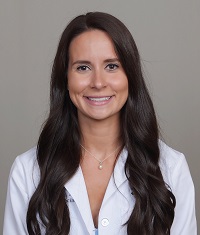
Special to Iredell Free News
With the new year in full swing, your children are likely back in school, diving into new lessons, and reuniting with friends. Unfortunately, as kids gather, so do germs, and the stomach bug is notorious for spreading in school settings.

When the tell-tale signs of the stomach bug plague your household, it’s important to brace for the inevitable and have a game plan.
Dr. Judith Prairie, a physician at Family Care Center of Mooresville, offers the following advice for when your child gets sent home from school with the dreaded stomach bug.
What is the stomach bug?
The stomach bug, also sometimes called stomach flu or gastroenteritis, is a contagious virus that causes an infection of your child’s stomach and intestines.
The most common way to contract the stomach bug is through contact with an infected person or through contaminated food or water. Children love to share their food and drinks at lunch with friends, but unfortunately, this could spread many germs, including the stomach bug.
“There are several types of viruses that cause the stomach bug, the most frequent being norovirus, rotavirus, adenovirus, and astrovirus. Norovirus is the most common cause of the stomach bug and affects all ages,” said Prairie.
These viruses can occur at any time, but they are most common in winter months.
What are the symptoms?
According to Prairie, the most common symptoms are nausea, vomiting, watery diarrhea, stomach cramping, and sometimes a low-grade fever.
“Symptoms usually begin 12 to 48 hours after coming in contact with an infected person and last about one to three days. But depending on the virus, symptoms may last up to two weeks,” said Prairie. Children should stay home from school at least 48 hours after they last vomited or had diarrhea.
How to care for your child with the stomach bug
According to Prairie, the key to treating the stomach bug is making sure your child stays hydrated.
“Oral rehydration with diluted Pedialyte or Gatorade and plenty of water are the cornerstone. Aim to replace the fluids you are losing from vomiting and diarrhea. You should eat bland foods, especially if your stomach is feeling unsettled. I like to suggest the BRAT diet: bananas, rice, applesauce and toast,” said Prairie.
Make sure to avoid drinks that can make symptoms worse, like sodas or juices.
If you are really struggling, Prairie recommends using the children’s version of Pepto-Bismol or loperamide (Imodium). As always, make sure to read the medication label and follow the dosage instructions for your child’s age and weight.
In addition to caring for your sick child, you should take steps to protect yourself and others in your household. Encourage frequent handwashing from all family members. Make sure to wash your hands after touching or supporting your child and when preparing food and eating. According to the Centers for Disease Control and Prevention (CDC), hand sanitizer does not work well against stomach bugs caused by norovirus, so it’s crucial to wash your hands thoroughly with soap and water.
Make sure to clean and disinfect items in your house that your child has touched. Some viruses that cause the stomach bug can live on surfaces, like toilets, doorknobs, countertops, and even toys, for weeks. Wearing rubber gloves, you can effectively disinfect your surfaces with a chlorine bleach solution. Wash clothing and bedding with detergent and hot water and dry on the highest heat setting.
When to visit the doctor
Due to their smaller body size, children are more prone to dehydration than adults. If your child has signs of dehydration, you should contact their doctor or pediatrician. According to Prairie, signs of dehydration include:
• Minimal urine output or dark urine;
• No tears when crying;
• No wet diaper for more than 4 hours;
• Sunken eyes or cheeks;
• Dizziness; and
• Extreme thirst
You should also call your child’s doctor if your child has severe or worsening abdominal pain, high fever (above 104F), bloody diarrhea, or is unable to keep any amount of liquids down.
Dealing with a stomach bug in the household can be challenging, but focusing on keeping things clean, making sure your child stays hydrated, and offering comfort can promote a quick recovery and help you and your family navigate through the storm of a stomach bug.
LEARN MORE
Dr. Prairie practices at the Family Care Center of Mooresville, located on the second floor of Iredell Mooresville at 653 Bluefield Road. She treats patients of all ages, infants to seniors. If you would like to schedule an appointment with Dr. Judith Prairie, please call 704-360-6580.
About Iredell Health System
Iredell Health System includes Iredell Memorial Hospital; Iredell Mooresville; two urgent care centers; Iredell Home Health; Iredell Wound Care & Hyperbaric Center; Community and Corporate Wellness; Occupational Medicine; the Iredell Physician Network and more. Iredell Memorial Hospital is the largest and only nonprofit hospital in Iredell County. The comprehensive healthcare facility has 247 beds; more than 1,800 employees; and has 260 physicians representing various specialties. Centers of excellence include Women’s and Children’s; Cardiovascular; Cancer; Surgical Services and Wellness & Prevention. The Health System’s second campus, Iredell Mooresville, is home to the area’s only 24 hour urgent care facility, as well as an ambulatory surgery center, imaging center, rehabilitation services, and physician practices. The mission of Iredell Health System is to inspire wellbeing. For a comprehensive list of services and programs, visit www.iredellhealth.org.



